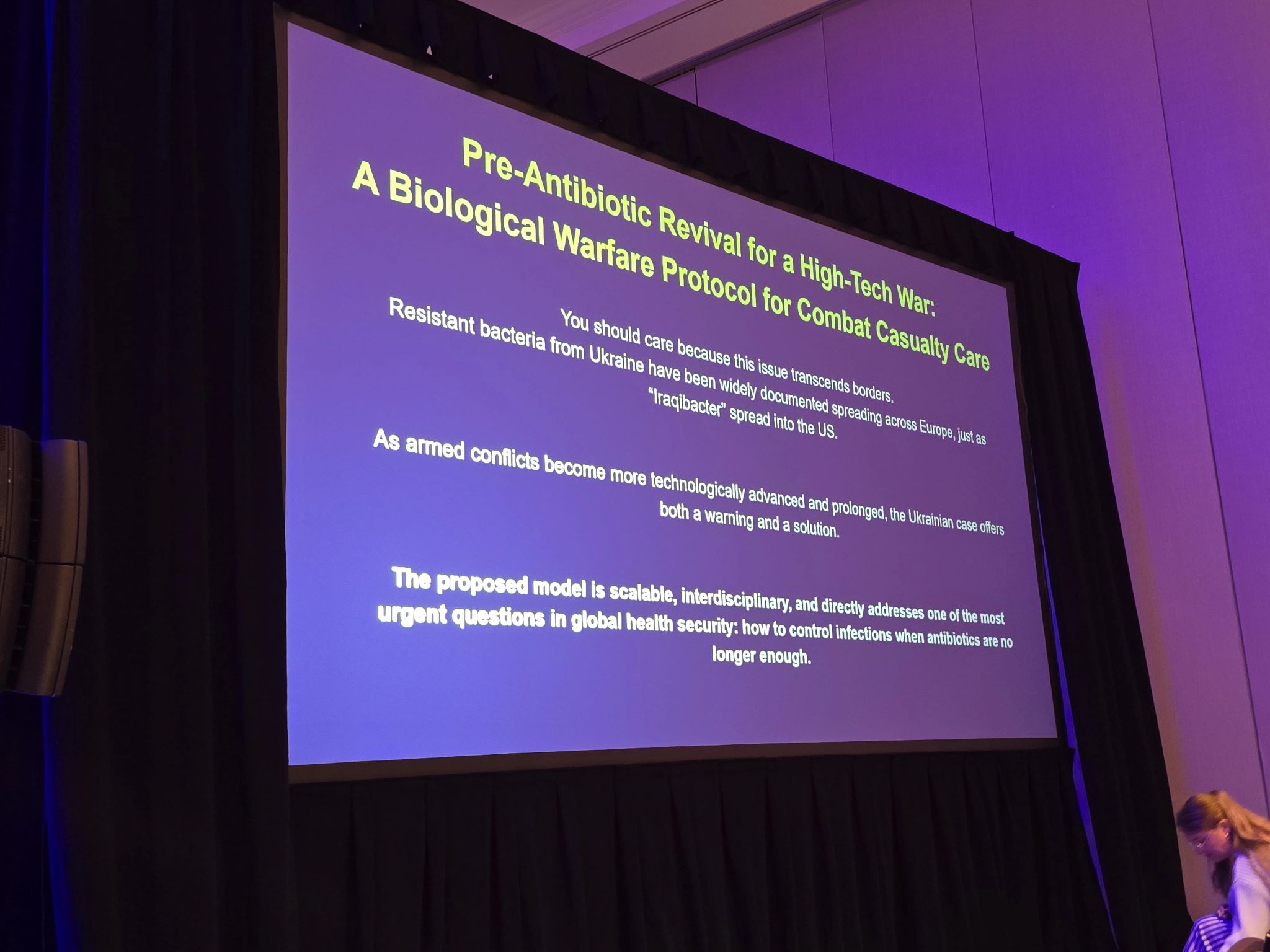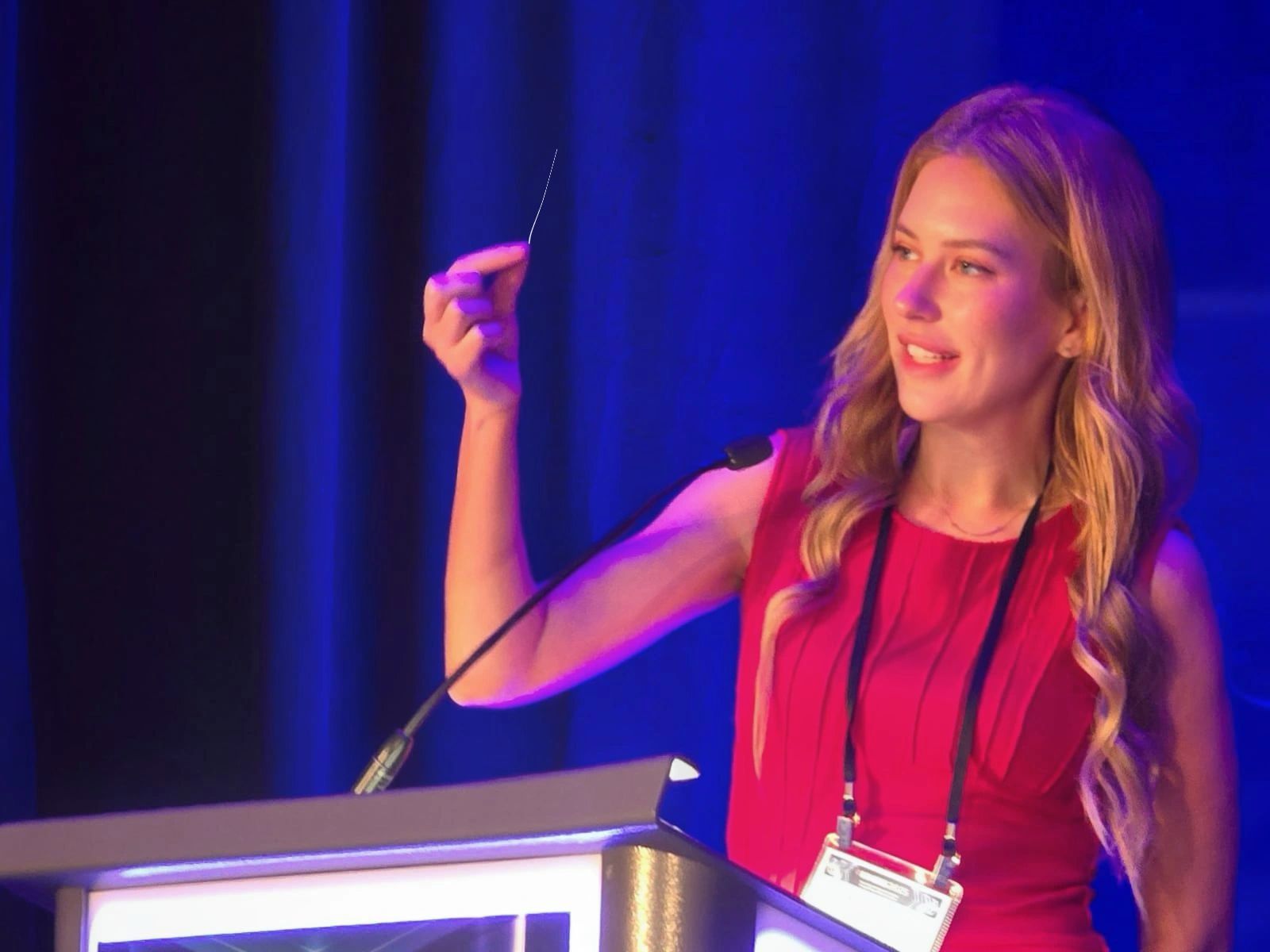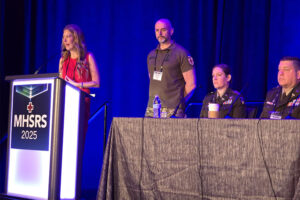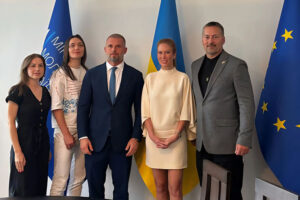Weaponized Wound Infections: UA-MED Presents New Research at MHSRS
Orlando, Florida – August 2025
The future of war medicine is already here, and antimicrobial resistance is at the center of it. At the Military Health System Research Symposium (MHSRS) this week, members of the Ukrainian Alliance for Medical Exchange and Development (UA-MED) joined colleagues from around the world to present findings on how modern warfare is accelerating the threat of antimicrobial resistance.
The presentation, led by Dr. Hailie Uren along with B. Hudson Berrey, Konstantin Gumeniuk, and UA-MED partners, outlined how the large-scale combat in Ukraine has pushed antimicrobial resistance into a new and dangerous phase. What is usually a slow-moving public health concern has been transformed by the conditions of the battlefield. Loitering drones, delayed medical evacuation, and soil-contaminated wounds have created an environment where infections are spreading quickly and often with devastating results. Experts described this as the weaponization of wound infections.

In peacetime, antimicrobial stewardship has focused on responsible antibiotic use to prevent resistance. In Ukraine, that approach is no longer enough. Medical teams are now calling for an active defense strategy, similar to protocols used for chemical, biological, radiological and nuclear threats. This requires aggressive wound decontamination, strict hygiene procedures, and rapid surgical care to intercept multidrug-resistant pathogens before they spread. Without such measures, infections can move from the zero line to rear hospitals and ultimately across borders.
The implications extend far beyond Ukraine. The microbes emerging in its trenches today could reach hospitals worldwide tomorrow. Antimicrobial resistance does not recognize frontlines or borders, making Ukraine’s medical response a global concern.

UA-MED, a coalition of hospitals, universities, and NGOs, is working to strengthen and modernize Ukraine’s healthcare system under wartime strain. Through international observerships, training programs, and collaborative research, UA-MED equips Ukrainian clinicians with the skills and knowledge needed to meet these challenges while ensuring that the lessons learned contribute to global medical preparedness.
At the symposium in Orlando, the message from UA-MED was clear. Ukraine is not only the frontline of the war, it is also the frontline in the global fight against antimicrobial resistance.




